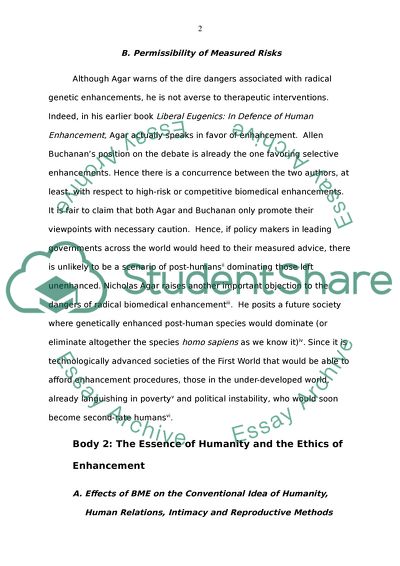Cite this document
(The Ethics of Biomedical Enhancement Book Report/Review, n.d.)
The Ethics of Biomedical Enhancement Book Report/Review. Retrieved from https://studentshare.org/philosophy/1805955-humanity
The Ethics of Biomedical Enhancement Book Report/Review. Retrieved from https://studentshare.org/philosophy/1805955-humanity
(The Ethics of Biomedical Enhancement Book Report/Review)
The Ethics of Biomedical Enhancement Book Report/Review. https://studentshare.org/philosophy/1805955-humanity.
The Ethics of Biomedical Enhancement Book Report/Review. https://studentshare.org/philosophy/1805955-humanity.
“The Ethics of Biomedical Enhancement Book Report/Review”, n.d. https://studentshare.org/philosophy/1805955-humanity.


